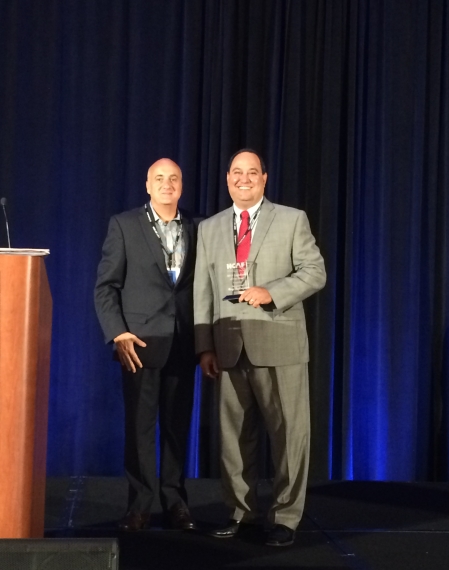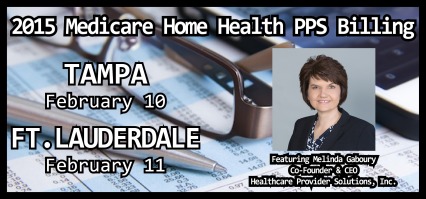Another huge win for home care! This particular ruling could have major implications…..
- CMS approaching our industry with a settlement offer on the thousands of denied claims that are being held in limbo at the ALJ level because of the F2F narrative, so start considering what you might accept on your denied claims.
- It could help slow down or lessen the intensity of the next round of F2F audits from RACs and MACs. They are gearing up and this may take a little wind out of their sails.
- It strengthens our industry and gains us respect and leverage on a host of other critical issues. This will help us!
We are very grateful to all home care providers who choose every year to support associations like NAHC and HCAF. It is your dues dollars that made this happen. Thank you.
January 5, 2015
Federal Court Rules in Favor of Homecare
Clears the Way for NAHC’s Face-to-Face Lawsuit to Go Forward
Today, a federal district court issued a resounding victory for the National Association for Home Care & Hospice (NAHC) and the home health agencies, Medicare participating physicians, caregivers, and beneficiaries it represents. The U.S. District Court for the District of Columbia held that it has the power to hear a challenge to the validity of a Medicare rule that requires physicians to provide a “narrative” explaining why the patient meets Medicare coverage standards for home health services. The court issued an order denying Medicare’s effort to have the lawsuit dismissed by the court.
The Centers for Medicare and Medicaid Services (CMS) issued a face-to-face rule that physicians had to lay eyes on patients and certify under penalty of law that that they were eligible to participate in Medicare and, more specifically, were “homebound” and needed “skilled care.” In addition, the rule required physicians to write a detailed narrative explaining the reasons why they thought this was true. This new requirement caused widespread chaos, spurred a physician rebellion, and in the end deprived many seniors from receiving the care to which they were entitled under the Medicare home health benefit.
NAHC convinced groups representing seniors and the disability community to join together with physician organizations and thereby succeeded in convincing a majority of the Senate to send a letter intervening on NAHC’s side in this matter. NAHC also filed suit in federal district court to overturn the onerous rule. The result was that CMS withdrew the physician narrative requirement which would have been effective January 1, 2015.
NAHC asked CMS to give the decision retroactive effect and pay claims that were denied between 2011 and 2014, but CMS denied to do so. NAHC made other appeals to CMS to settle the suit which it could have done by paying some $250 million owed to home health agencies for care they gave to Medicare patients between 2011-2014. This gave NAHC no choice but to proceed with the litigation.
In today’s action, the court ruled against the government on its motion to dismiss this case. The government attorneys had interposed numerous reasons, both substantive and procedural, as to why the case should not go forward, all of which were turned aside.
The court held that it would be futile for home health agencies to pursue endless administrative appeals challenging the requirement as Medicare had made it clear that it would reject all such appeals. By denying Medicare’s Motion to Dismiss, the legal validity of the narrative requirement will be fully reviewed by the federal court.
Medicare had filed a Motion to Dismiss the lawsuit arguing that administrative appeals had to be fully completed before a court had the power to hear a Medicare dispute. Medicare also argued that the case should be dismissed because the narrative requirement, on its face, was a valid interpretation of the authorizing law in the Affordable Care Act. Federal District Judge Christopher R. Cooper rejected both of these defenses.
Judge Cooper found that it would be futile for home health agencies to pursue administrative appeals because Medicare had definitively stated that it considered the requirement to be valid. NAHC had argued that Medicare had issued a final decision on the validity of the rule numerous times including when Medicare officials met with NAHC as well as in its issuance of the recent rule change that eliminated the narrative requirement. Judge Cooper agreed. He described the challenged policy as “embedded” and that “nothing indicates that administrative appeals might result in the agency overturning its regulation.”
While rejecting Medicare’s attempt to escape judicial review of the face-to-face narrative requirement, the court did grant dismissal of two additional claims in the lawsuit. NAHC also challenged the ambiguity of the interpretive guidance issued by the Centers for Medicare and Medicaid Services along with its failure to waive the recoupment of alleged overpayments under the Medicare “without fault” provision. On those matters, the court found that the factual complexities warranted a review of individual claim determinations at the administrative levels prior to any judicial intervention.
NAHC and Medicare will now move forward with the lawsuit. The next steps would include the filing of cross-motions for Summary Judgment. Summary Judgment is the equivalent of a trial on the merits of the claims where there are no material issues of facts in dispute. Here, NAHC argues that the plain language of the law prohibits Medicare from adding the burdensome narrative as a documentation requirement. The law itself only permits Medicare to require that a physician document that a face-to-face encounter occurred and when. As such, it is claim based on the language of the law itself and does not involve any facts other than that Medicare requires more documentation.
NAHC continues to litigate the dispute in spite of Medicare’s rescission of the narrative requirement to address the past claim denials and those denials that may still come involving home health services provided prior to January 1, 2015. If the lawsuit is successful, Medicare would be required to reopen and pay any claim previously denied for an insufficient narrative and stop any further claim reviews related to the narrative requirement.
NAHC continues to advise home health agencies to consider appealing any narrative-related claim denials while the lawsuit is progressing. Such action will preserve the opportunity to have the claims reviewed by Administrative Law Judges and also allow for easy identification of claims that may be subject to reopening if the lawsuit is successful.
“This great victory in federal court means that Medicare patients, physicians, and the home health community will have their day in court,” said NAHC President Val J. Halamandaris. “It is a clear signal that a federal judge also does not see why a rule which CMS had invalidated effective January 2015 should be honored for the years 2011, 2012, 2013, and 2014. There is no reason why the home care community should not be paid for the services it rendered in good faith to Medicare home health beneficiaries.”
Bill Dombi, NAHC’s Vice President for Law, appealed to CMS to save Medicare the cost of the trial. “We urged them to do the right thing. The right thing is to pay these claims. NAHC intends to pursue this litigation until CMS agrees to do so.”









You must be logged in to post a comment.